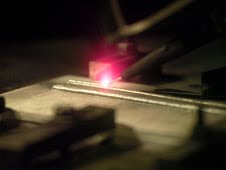In-Line Water Filtration: Better Hygeine, Less Expense

Water sphere "behavior" experiments aboard the International Space Station. Image Credit: NASA Watch the video on YouTubeWater, essential to sustaining life on Earth, is that much more highly prized in the unforgiving realm of space travel and habitation. Given a launch cost of $10,000 per pound for space shuttle cargo, however, each gallon of water at 8.33 pounds quickly makes Chanel No. 5 a bargain at $25,000 per gallon. Likewise, ample water reserves for drinking, food preparation, and bathing...



 12:37 AM
12:37 AM
 sheldon
,
sheldon
,






















